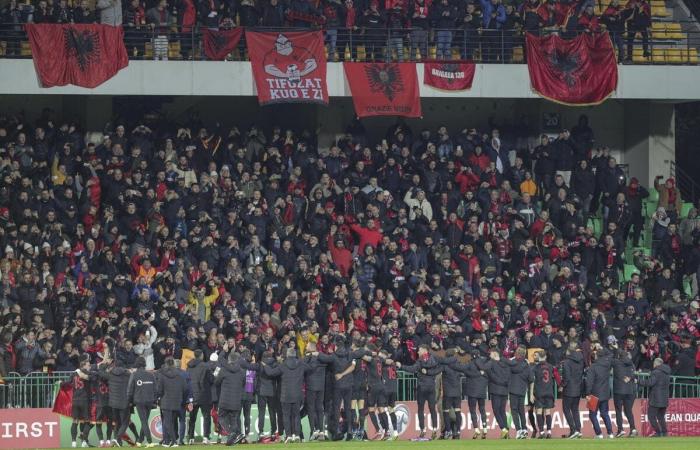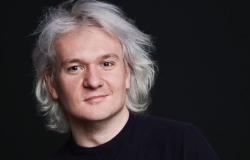Home » Sport » If Albania challenges Italy today at Euro 2024 it is also thanks to Italy
De Biasi, Panucci, Reja and more. The communist regime prevented the football movement from growing for decades, but since the 1990s the collaboration between our Football Federation and the Albanian one has brought unimaginable results. Until tonight
The problem with success is that it is constantly misunderstood. Because we always end up making an idea absolute that should be relativized as much as possible. Albania knows something about this, a country of less than three million inhabitants which is preparing to celebrate its second participation in theEuropean like a small national success. And it matters little if the hopes of passing a group made up of Italy, Spain and Croatia are reduced to the bare minimum. What matters is simply being there, underlining the development of a movement that has been compressed, marginalized and abandoned for too long. A constant growth that found the strength not to run out after qualifying for Euro 2016, but to look forward. Also thanks to Italy.
Communist Albania and the origins of football in Tirana
Because behind the explosion of the Albanian ball there is a lot of know-how and of the Italian football tradition. On the other hand, for four decades football in Shqiperia had been something very close to a private affair. Enver Hoxha, the People’s Guardian, had placed himself at the head of the smallest state in the Soviet orbit and had transformed it into a decidedly angry nation. It didn’t take much to unleash the dictator’s anger. You couldn’t listen to the radio. You couldn’t own a bicycle, let alone a car. Western songs could not be hummed. Long hair, a symbol of freedom, could not be worn. Indeed, the only hairstyles allowed were those established by the state administration hairdressers.
The party was decidedly invasive. He established what work each citizen could do and planned weddings. Those who resisted were sent to labor camps. And that’s where things got pretty complex. The penalties were harsh. One man was sentenced to ten years just for being the first to sit down after a Hoxha rally. Political opponents were housed in cells too short to stand and too short to lie down. So every now and then someone would start running towards the barbed wire barriers only to get shot by the guards. It is in this context of control and fear that Albanian football developed.
It is played only against communist opponents
As in the best Eastern tradition, the secret police created one team (Dinàmo), the army another (Partizani), dividing up the best players and therefore the titles and successes. The national team could only play against teams from the Soviet bloc and away games were frowned upon. Better to avoid escapes of footballers and having to meet capitalist states. The situation changed in 1953, with the death of Stalin, Hoxha’s point of reference. The Albanian leader saw Khrushchev’s revisionism as blasphemy shouted across the aisles of a church. Thus even the friendly matches against the Soviet Union were blocked.
Then, with the breaking of diplomatic relations with the USSR in 1961, Albanian soil returned to hosting friendly matches and continental cups. The first leg of the Champions Cup in 1970 was memorable, when Nëntori Tirana hosted Ajax on the 17th. The Dutch players refused to show up at the barbershop that the state had opened at the airport. Thus a particular agreement was found. Ok to beards and long hair, as long as the Ajax players didn’t speak a word to their colleagues. Something must have been lost in translation. The match ended 2-2, but the Ajax boys complained because no one had said a word to them. They didn’t know that the stands were full of secret police agents ready to sanction transgressors with 10 years in prison.
The myth of Italy and the agreement between the Football Federation
Things began to change with the end of the regime and the beginning of the nineties. Italy, whose myth was also fueled by the initiative of condominium owners who secretly moved the television antennas to pick up the programs of the Rai, becomes a center of attraction for Albanian emigration. They arrive in their thousands, convinced they can exploit a certain territorial and cultural proximity. Albanian players begin to appear in Serie A. At the turn of the new millennium, Italian fans rejoice for the goals of Bogdani and Tare, singing their names. Dossena becomes coach of the National Eagles team. But it’s still too little.
The real turning point came in April 2012. The FIGC and the Albanian Football Federation signed a football cooperation agreement. The Azzurri will make their skills available to the neighbors in the technical and tactical fields, but also in the management of infrastructure and sports medicine. In addition, a series of friendly matches will be organised. The first was played in November 2014 to raise funds for the population of Genoa affected by the flood, and ended with the Italians winning 1-0, goal by Okaka.
De Biasi’s miracle and the legacy of Panucci and Raja
The rapprochement between the two Federations is not accidental. In 2011 the Albanian national team was entrusted to Gianni De Biasi, who was asked to help Albania qualify for an international competition. Science fiction. De Biasi works on two tracks: he tries to stimulate the players and convinces them that they can achieve ambitious goals, then he thinks about the squad. Many Albanians abroad have dual citizenship. We need to work to ensure that they choose the two-headed eagle. De Biasi thus works on scouting. There is no player with a dual passport who is not evaluated. In the end the miracle really happens. Albania qualifies for Euro 2016. «In Albania they look at me as if I were a healer» says De Biasi. The system works.
After the coach’s farewell, first Panucci and then Reja were hired. And their legacy is still present. Sylvinho himself, the new selector, admitted that his training took place in Italy, with Ulivieri. But among the Rossoneri staff there is also Alarico Rossi, a 38-year-old Tuscan who arrived as a match analyst seven years ago and has now developed an algorithm for selecting players.
This is why tonight’s match has a particular value. It’s as if two different nations were playing a derby. On the other hand, in 2019 the mayor of Tirana Erion Veliaj had said to Limes: «Many people consider Albania an Italian province opposite Puglia. They say that you can’t choose your neighbor: I believe that, even if we had been able to choose, we couldn’t have chosen a better neighbor than Italy.”







